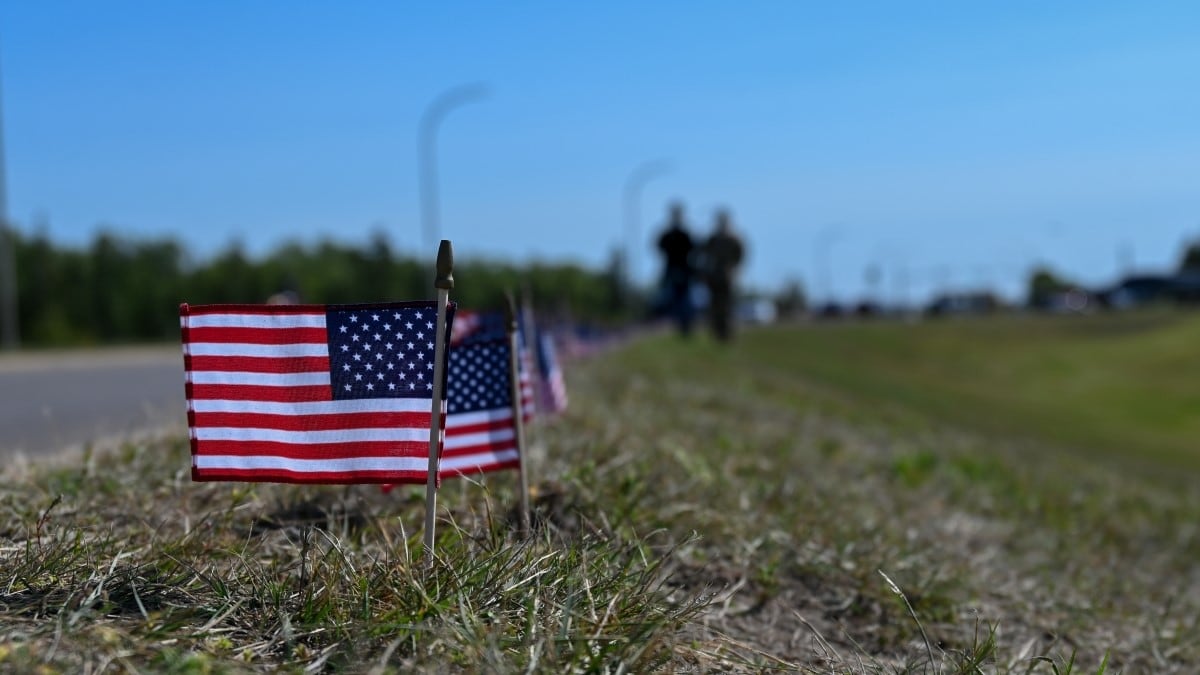NOVOPETRIVKA, Ukraine — Few jobs are less enviable these days than that of a Russian mobilized soldier deployed to Ukraine.
Since Vladimir Putin’s declaration of partial military mobilization on Sept. 21, dozens of videos have emerged showing the dire conditions in which those drafted into Russia’s invasion of Ukraine are forced to serve. Conscripts have been sleeping under the open sky, given paltry food and faulty weapons, and their officers concern themselves with drinking rather than providing any sort of training before they are sent to the front.
Yet others even further down the socioeconomic pecking order have been forced into service: the men of the Donetsk and Luhansk People’s Republics, the Russian puppet states in eastern Ukraine whose male population was press-ganged en masse this summer. Interviews with locals and documents recently recovered by Military Times from abandoned Russian positions in the former frontline village of Novopetrivka, in southern Ukraine’s Mykolaiv oblast, offer a glimpse of the day-to-day existence.
Located 40 kilometers north of the city of Kherson, Novopetrivka sat in the heart of Russia’s defensive line on the right bank of the Dnipro River for over six months. After Russian troops captured Kherson in the opening days of the war in early March, their advance on the city of Mykolaiv was repulsed by Ukrainian defenders. They quickly settled into Novopetrivka.
Military Times visited the village on Nov. 12, just two days after its liberation by Ukrainian forces. The signs of occupation were fresh, particularly a series of Z’s - the symbol of the Russian campaign - spray-painted on tractors and other vehicles.
“[The Russians] came on the 27th or 28th of February,” said Viktor, a 50-year old villager. “Columns were passing through the village night and day, as they attacked Mykolaiv. But then our guys beat them there [at Mykolaiv], and they ran back here and entrenched. There was a heavy battle here - a tank was destroyed over there, my house was hit by a shell - but [Ukrainian forces] couldn’t push them out,” he says.
In these early days, the Russians were interested in attempting to win over the local populace. Viktor and others in Novopetrivka describe good treatment and genuine friendliness shortly after the occupation. But the mood quickly shifted.
“[The Russians] could see that we were not interested in their propaganda,” Viktor said. “They started to lose their temper, especially as they could no longer beat [Ukrainian forces] on the battlefield. By the summer, they were regularly taking people for torture - most of them simply disappeared,” he said.
There was also resentment among different sections of the Russian and pro-Russian forces stationed in Novopetrivka, with stark differences in living conditions leading to tension.
“The Russians [and Donetsk/Luhansk troops] were living in the trenches, doing the actual fighting,” Viktor says. “But in the village itself, Chechens and Buryats were staying in people’s houses, not fighting at all. They would just go around the village and rob as they pleased and threaten anyone who tried to stop them - both locals and Russians. The Russians did not like them at all,” he says.
The trenches themselves start on the northern outskirts of Novopetrivka, an extensive series of positions arranged in two lines. Scattered around the trenches are the standard assortment of basic supplies: discarded cans of food, dirty clothes, and packets of medication of dubious quality. One item, however, offers a more insightful look at the conditions of life there: a serviceman’s half-filled notebook left in one of the sleeping bunkers.
Much of the notebook’s contents are mundane. Many pages list food rations or patrol schedules. But one contains a full description of the size and disposition of the unit located there. “2nd Rifle Company, 57 people,” the opening line reads, revealing that this was an infantry unit without armored vehicles - likely drawn from mobilized or volunteer personnel. The next lines tell that there are 16 people per subunit, of which 27 are currently resting after duty, doing upkeep work like cleaning and repairs. There is also a grenade launcher platoon, from whom five people are presently at combat posts with nine others doing chores.
Other pages of the notebook provide further clues as to the unit stationed here. On one sheaf, a series of phone numbers of other men in the unit are listed. All of them begin with the Russian international calling code +7, but more interesting is the area code for each: 990. A quick search reveals that this area code was issued by two Russian telecoms companies beginning in May 2022 for the occupied Kherson and Zaporizhzhye regions. That these soldiers were using personal cell phones for military communications - and forced to write down their comrades’ numbers on paper - is another indictment of the paucity of basic equipment these soldiers had.
Finally, the most interesting page yet captures the mood of the soldier who owned it. There is a crude poem scrawled in Russian, lamenting the “civilian guys on their fancy motorcycles [back home],” the ones who did not come to the war. “Fuck you, I fought hard,” the author repeats several times, also saying that he “did not get buckets of unearned medals.” The text itself has numerous spelling and grammar errors, of the sort a Ukrainian speaker of Russian might make - suggesting heavily that the author is a native of the occupied Luhansk or Donetsk oblasts, in Ukraine’s east. It’s clear that he was not particularly pleased with the lot he found himself in - and that he had little love for those meanwhile enriching themselves in peaceful Moscow.
In the end, the sacrifices of the author and his comrades were in vain, as they were forced to abandon their hard-defended positions. Viktor, the local man, says the withdrawal was just as surprising to the Russian servicemen as it was to Novopetrivka’s residents.
“They were shocked,” Viktor says, when asked how the Russian and LNR/DNR troops in the village responded to the withdrawal. “They had been telling us, ‘Russia is here forever,’ and suddenly it turns out the opposite,” he said. “But then, they never really knew what they were doing here in the first place. We are fighting for our land. They are simply dying as slaves for Putin.”
Neil Hauer is a freelance reporter covering the war in Ukraine and the Caucasus at large. You can follow him on Twitter at @NeilPHauer.




